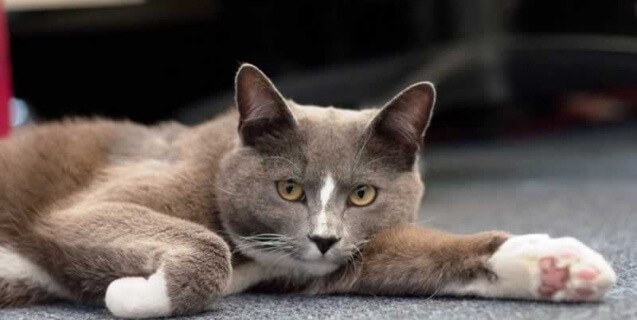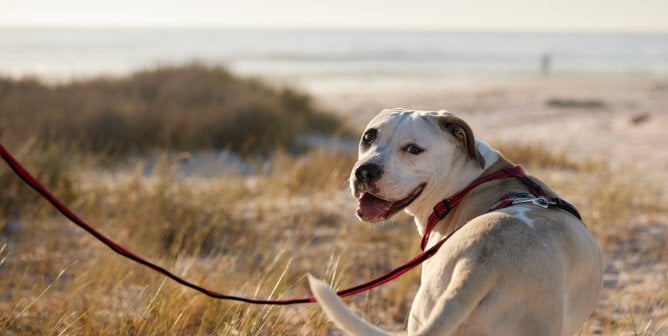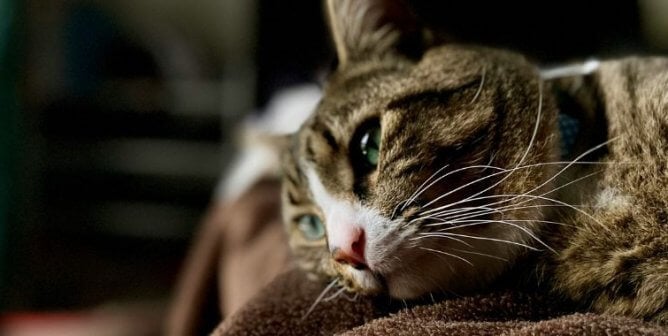Cats depend on people for everything they need—food, fresh water, a clean litter box, veterinary care, and, most important, affection and love. Here are some essentials to keep your feline friend happy and safe.
Explore the Great Indoors
Cats may sometimes act cocky and independent, but they are as defenseless as toddlers in the concrete jungle. Cats allowed to roam outside unattended may be attacked by dogs, stolen by dogfighters to use as “bait” or by thieves who sell animals to labs, or shot or poisoned by neighbors who don’t like them digging in the flowerbeds or climbing on their cars. Cats who roam outside are also exposed to deadly diseases like feline AIDS and feline leukemia, for which there is no cure.
Cats can adapt nicely to life indoors if they get plenty of playtime and other ways to exercise their agile minds. From paper bags and rolled up balls of paper to motorized “mice” and laser pointers, toys perk up even the laziest feline. All-time favorites are Cat Dancer and Cat Charmer.
Windows are cat “TV”—a birdbath or feeder placed near a window can provide hours of entertainment.
If window sills aren’t wide enough, build or buy a cushioned perch (available from pet supply stores and catalogs) to attach to the sill. A screened-in porch or an enclosure accessible through a window is a great way for your cat to safely commune with nature. KittyWalk Systems makes enclosures in a variety of configurations that can stand alone or be attached to a cat door. If your yard is fenced, another option is Cat Fence-In, a netting kit that attaches to the top of the fence. No existing fence is necessary to install another escape-proof system, called Purrfect Fence, although it is advisable to supplement it with sturdy fencing of some kind to keep dogs and other predators out.
Cats can safely explore outdoors on a leash—just be sure to use an ultra-lightweight, retractable leash attached to a harness, not a collar. Let your cat get used to the harness for short periods indoors, then pick a safe outdoor area to explore. KittyWalk Systems also makes a “pet stroller” that allows for longer, brisker walks and provides a measure of safety from free-roaming dogs.
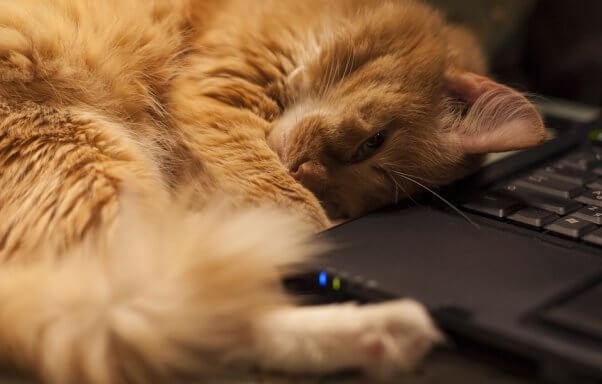
Five out of Five Cats Prefer a Clean Litter Box
Nobody likes to use a dirty bathroom, which is why it’s important to scoop out your cat’s litter box at least twice a day, preferably every time your cat uses the box, but especially after meal times. If you have more than one cat, a good rule of thumb is to have one box per cat. Avoid scented litters, since cats are sensitive to smells. Place the litter pan well away from the cat’s feeding area and in a place that is quiet and feels “safe” to your cat.
Any cat who is urinating outside the litter box should be taken to a veterinarian right away to rule out a urinary tract infection, which is very common and can be fatal, especially in male cats, who can become “blocked” and die from a build-up of toxins very quickly. If a urinary tract infection is ruled out, your cat may be unhappy with the cleanliness of the pan (or lack thereof), the type of litter used, the location, or with the box itself (some cats prefer covered boxes and vice versa).
There’s even new technology to help with cleaning and refilling litter boxes and monitoring your cat companion’s health. PurrSong empowers cat guardians with its AI technology, including in its LavvieBot S—an auto-cleaning and auto-replenishing litter box system—as well as its forthcoming health-monitoring litter system. PurrSong is also a PETA Business Friend that supports our work for all animals.
Dinner Is Served
It sounds obvious, but you’d be surprised how easy it is to forget to check Fluffy’s water, clean her bowls, and feed her twice a day. Cats are finicky—they won’t drink dirty water—but if they eat kibble, they will need plenty of water to prevent urinary tract infections. Kibble shouldn’t be the cat’s sole food, and it doesn’t have to be in a cat’s diet at all. Canned or homemade food is more palatable and will help add moisture to the diet to help prevent a urinary tract infection. If you want to sever your last link with the slaughterhouse, it is possible to feed cats a vegan diet, but it must be done carefully to make sure that it is nutritionally balanced and that the cat is thriving on it.
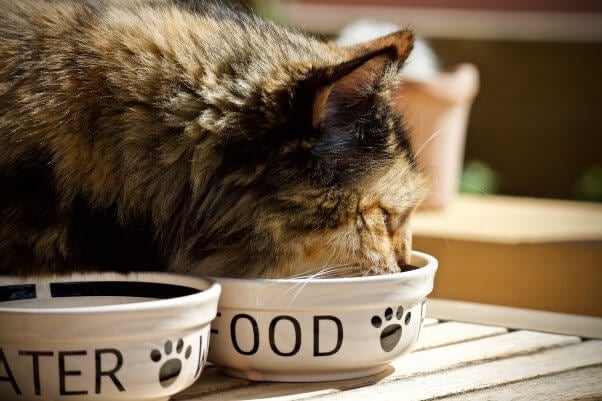
Decline to Declaw
Cats love to scratch. It helps to remove broken claws, stretch muscles, and mark “territory.” Declawing is definitely NOT a good way to protect your furniture—in fact, it’s the most expensive and painful one: Declawing is actually 10 individual amputations, since it involves chopping off the last joint of each one of the cat’s toes. Declawing can make cats insecure, moody, and more prone to biting because they can’t use their claws to defend themselves. It can also lead to litter box problems, proving that there’s more than one way to ruin a carpet!
The best way to save your furniture is to provide lots of “approved” places to scratch. Sisal cat “trees” and posts, cardboard scratching boxes, and those ingenious “cat tracks” (a ball in a circular plastic tunnel surrounding a cardboard scratching pad) are big hits. Sprinkle catnip on them weekly to keep cats interested, and be sure to replace cardboard inserts when they get worn out.
Trim your cat’s claws once every two weeks—you just have to remove the sharp “hook” at the end—and put double-sided tape on places that you don’t want your cat to scratch—cats don’t like the sticky feeling on their paws.
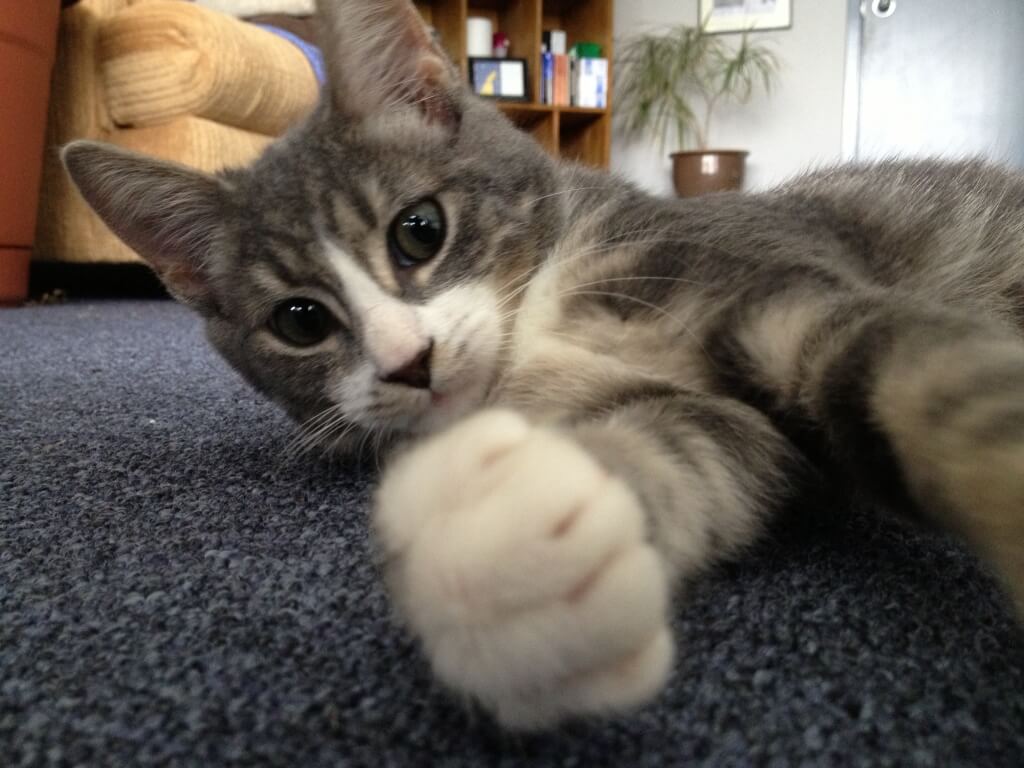
Making Fleas Flee
Fleas don’t just make cats uncomfortable, they can also cause skin allergies and tapeworm infestations (when cats ingest fleas through grooming). Cats who stay indoors are less likely to get fleas, but they can still catch them from you if you accidentally bring fleas inside on your pants or shoes. Monthly treatments with flea killers aren’t necessary unless you see fleas on your cat, nor are baths with hazardous insecticidal shampoos (since soap and water alone kill fleas). A nontoxic alternative to flea poisons is to use a flea comb, which catches the fleas in its fine teeth, and then dunk the fleas into a container of soapy water or put them in a container in the freezer.
Get to the Vet!
Spaying and neutering doesn’t just prevent the births of unwanted kittens, it also prevents cancer of the reproductive organs and, if performed before the cat reaches sexual maturity (at about 5 to 6 months old), can also prevent other cancers, such as breast and prostate cancer.
Any cat who is acting lethargic or “grouchy,” has diarrhea or frequent vomiting, isn’t eating, or is having “accidents” outside the litter box should be taken to the vet right away. Even “minor” illnesses can turn fatal if not treated, and regular check-ups can prevent or catch diseases before they become serious.
***
Cats and all other animals are individuals, not property, which is why they should never be bought from pet stores, websites, or breeders. Adopting an animal companion means making a long-term commitment to care for and spend time with the animal for his or her entire life.
Text VEG to 73822 to get the latest vegan lifestyle tips, recipes, and urgent action alerts texted right to your phone.
Terms for automated texts/calls from PETA: https://peta.vg/txt. Text STOP to end, HELP for more info. Msg/data rates may apply. U.S. only.


